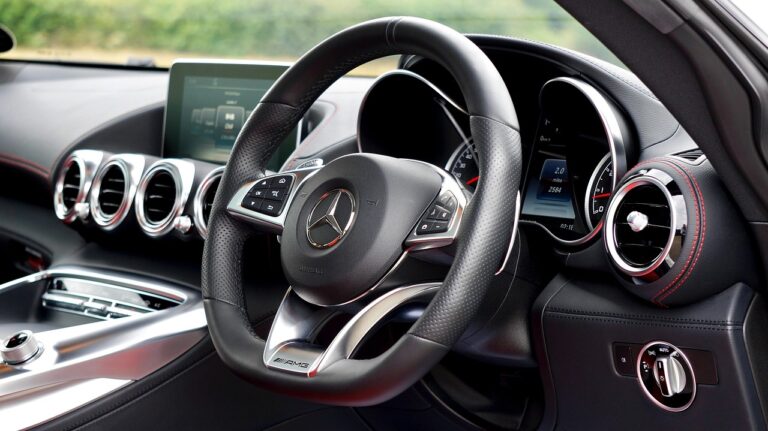The Future of Hybrid Car Components: 11xplay online, Indian 24bet, Skyinplay login
11xplay online, indian 24bet, skyinplay login: The future of hybrid car components is an exciting topic that holds a lot of promise for the automotive industry. As the world continues to shift towards more sustainable and environmentally-friendly forms of transportation, the development of hybrid cars has become increasingly important. Hybrid cars combine the benefits of traditional gasoline engines with the efficiency of electric motors, offering a cleaner and more fuel-efficient alternative to traditional vehicles.
In this article, we will explore the latest advancements in hybrid car components and discuss what the future holds for this rapidly growing industry. From batteries to motors to regenerative braking systems, there are a number of key components that make hybrid cars work. Let’s take a closer look at what the future may hold for each of these crucial elements.
Batteries
One of the most important components of a hybrid car is its battery pack. These batteries store the energy that is generated by the car’s engine and regenerative braking system, allowing the vehicle to operate in electric mode for short distances. The future of hybrid car batteries is looking bright, with research and development efforts focusing on improving energy density, reducing weight, and increasing lifespan.
In the coming years, we can expect to see the continued development of lithium-ion batteries, which are currently the most common type of battery used in hybrid cars. Advancements in battery technology will likely lead to longer driving ranges, faster charging times, and lower costs, making hybrid cars even more appealing to consumers.
Electric Motors
Another key component of hybrid cars is the electric motor, which works in tandem with the gasoline engine to power the vehicle. Electric motors are known for their efficiency and torque, making them ideal for use in hybrid vehicles. The future of electric motors in hybrid cars is focused on improving performance, reducing size and weight, and increasing reliability.
Advancements in motor design, such as the use of rare earth magnets and innovative cooling systems, are helping to make electric motors more efficient and powerful than ever before. In the future, we can expect to see even smaller and lighter motors that are capable of delivering high levels of performance while still maintaining excellent fuel economy.
Regenerative Braking Systems
Regenerative braking systems are another important component of hybrid cars, capturing and storing energy that is normally lost during braking. This energy can then be used to recharge the car’s battery and improve overall efficiency. The future of regenerative braking systems is focused on maximizing energy capture, improving system efficiency, and reducing wear and tear on brake components.
Advancements in regenerative braking technology, such as the use of advanced algorithms and sensors, are helping to make these systems more effective and responsive. In the future, we can expect to see regenerative braking systems that are capable of capturing even more energy and delivering smoother and more consistent braking performance.
Other Components
In addition to batteries, electric motors, and regenerative braking systems, there are a number of other components that play a crucial role in the operation of hybrid cars. These include power electronics, cooling systems, and control systems, all of which are essential for ensuring the smooth and efficient operation of hybrid vehicles.
The future of these components is focused on improving efficiency, reliability, and performance, while also reducing costs and complexity. Advancements in materials science, electronics, and software are all helping to drive innovation in these areas, leading to more advanced and capable hybrid cars.
FAQs
Q: How do hybrid cars work?
A: Hybrid cars combine a traditional gasoline engine with an electric motor and battery pack. The gasoline engine powers the car at higher speeds, while the electric motor provides additional power and efficiency at lower speeds and during acceleration.
Q: Are hybrid cars more expensive to maintain?
A: While hybrid cars may have higher upfront costs due to their advanced technology, they are generally more cost-effective to maintain over the long term. This is because hybrid cars have fewer moving parts than traditional vehicles, reducing the likelihood of mechanical issues and the need for frequent maintenance.
Q: What is the difference between a hybrid car and an electric car?
A: Hybrid cars use both a gasoline engine and an electric motor to power the vehicle, while electric cars rely solely on an electric motor and battery pack. Hybrid cars can operate in both electric and gasoline modes, offering more flexibility and range than electric cars.
In conclusion, the future of hybrid car components is bright, with advancements in battery technology, electric motors, and regenerative braking systems driving innovation and efficiency. As the automotive industry continues to embrace sustainable and eco-friendly solutions, we can expect to see even more advanced and capable hybrid cars hitting the road in the years to come. So, keep an eye out for the latest developments in hybrid car technology, as the future of transportation is looking cleaner and more efficient than ever before.







